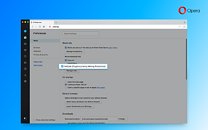It's a Web Mining Odyssey, Part 3: YouTube Falls to Injected Mining Code
Web mining's advent was the opening of a veritable Pandora's box when it comes to users' peace of mind while surfing the internet. What started with The Pirate Bay's implementation and ended up with a full-on browser war against these injected, unauthorized hijacks of users' electricity and computing resources has now taken to one of the world's most known and visited websites: YouTube.
Users of YouTube started getting heads-up that something might be wrong due to their antivirus protection kicking off some cryptocurrency mining warnings that seemed to only pop up when users were visiting YouTube. These warnings kept popping up even after a web browser change, and then, on Friday, researchers from TrendMicro touched upon the issue, saying that YouTube's web mining injections had led to a more than three-fold spike in the total number of cryptocurrency web mining warnings. Luckily, the web mining exploit wasn't deployed across the entire world: Trend Micro researchers said that the attackers behind the ads were abusing Google's DoubleClick ad platform to display them to YouTube visitors in select countries, including Japan, France, Taiwan, Italy, and Spain.
Users of YouTube started getting heads-up that something might be wrong due to their antivirus protection kicking off some cryptocurrency mining warnings that seemed to only pop up when users were visiting YouTube. These warnings kept popping up even after a web browser change, and then, on Friday, researchers from TrendMicro touched upon the issue, saying that YouTube's web mining injections had led to a more than three-fold spike in the total number of cryptocurrency web mining warnings. Luckily, the web mining exploit wasn't deployed across the entire world: Trend Micro researchers said that the attackers behind the ads were abusing Google's DoubleClick ad platform to display them to YouTube visitors in select countries, including Japan, France, Taiwan, Italy, and Spain.












